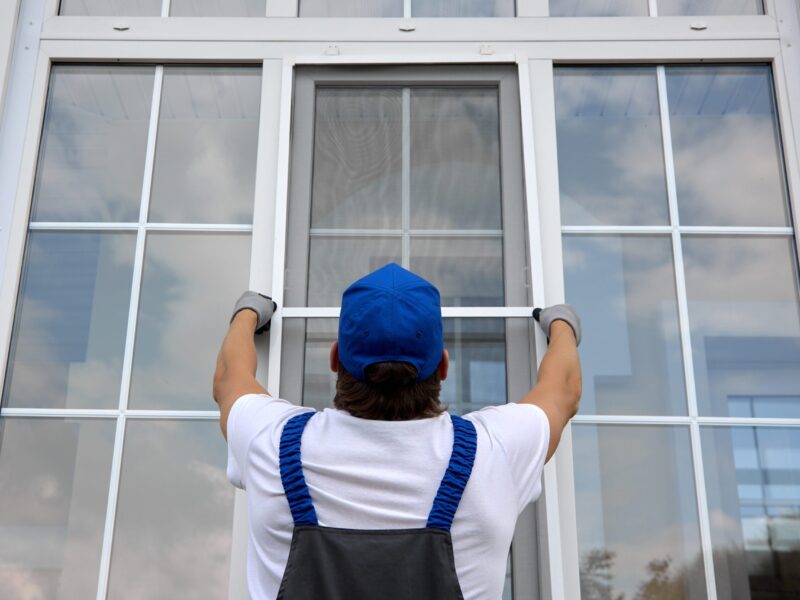The ancient proverb stating the abundance of caution is much better than remedy holds, particularly regarding house maintenance. A proactive home management routine will help you avoid a slew of costly issues down the line and keep your property in great shape. It is also considerably simpler to do preventative maintenance rather than sitting to see if something malfunctions and then scrambling to repair it.
Repairing things around the house should be enjoyable and safe. The majority of tasks are straightforward. It often revolves around cleaning once a week and adjusting a screw now and then. If not, it could be updating a light bulb and testing the batteries in your smoke detectors.
None of these activities are life-threatening, but it’s crucial to know when and where to draw the line and hire a professional. In what ways can you improve your home? Let’s find out.
Moisture
Keeping moisture out of your home is amongst the most crucial elements of preventive home care. If you still don’t have gutters and downspouts, have them installed by a professional. Doing so will divert excess water away from the structure, reducing the likelihood of a cracked slab. If your storm drain pipes are blocked, use a hose to rinse the debris out. And if it doesn’t work, clear the gunk from the stormwater pipe using a plumber’s tool.
Dirt and Dust
It is worth remembering that dirt is simply one of many probable sources of particles in households. Pollutants become present in our homes through both outdoor and indoor tasks, such as cleaning, cooking, or just wandering around the house. This situation could lead to increased particulate exposure.
The majority of the population is already conscious that indoor air quality is a developing hazard. That’s why many businesses offer equipment and services to improve your surroundings, one of which is air duct cleaning. It is a method to maintain filtration systems that supply and circulate the atmosphere inside your home. A service provider often uses specialized equipment to loosen dirt and other waste from vents before vacuuming them out.
Emergency Controls
All family members should recognize where you keep the main controls and how you can turn each one off in an emergency. For every area that there is an emergency shutdown valve, a wrench should be nearby. In addition, every house must have a sprinkler system or fire extinguisher in fire-prone areas such as the garage and the kitchen.
Lights and Electricity
As a general rule, the only electrical work you can ever try by yourself is minimal wiping, replacing light fittings, dusting the air conditioner filters, and switching the fuse box. For a few dollars, you can get extra plugs for your equipment at your local convenience store. However, you are not permitted to update them yourself. These tasks would require the services of a certified electrician, who must provide a professional certificate to prove that they thoroughly evaluated their work.
Landscaping
Examine your yard for any trees which will need some clearing. An unstable limb or tree might fall on your vehicle or roof or damage someone on your property during a storm or severe wind. Cracks, dead limbs, and hollow patches in the trunk are all warning indicators.
Pruning the hedge surrounding your property is a good idea. Keeping your shrubs in good shape enables adequate circulation around your house and makes your property safer by reducing the number of hiding spots for intruders.
Termites
Have a termite assessment every year, particularly if your house has a record of pest infestation or if you reside in a termite-prone location. To do the inspection, consult a state-licensed pest management business.
Survival Kit
Prepare a survival kit for your house in the event of a calamity. Each person in the family should have enough beverages, preserved or dry food, and relief supplies that could last up to three days. Replace the stores in your emergency reserve every once in a while. It’s best to update any new prescriptions or safety needs that your family might require.
Wrapping Up
Essential maintenance is a better investment than healthcare expenses or pricey repairs later down the road. What is more, home preservation is relatively simple. However, anything involving energy, electricity, piping, heights, or structural components should require professional support. While DIY initiatives might save you money over the long term, don’t forget about the home safety precautions you must follow to perform tasks and repairs properly.
Your home probably didn’t come with all the essential information you’ll need to maintain it in excellent working condition. Nonetheless, it takes a small effort to get things going on your way.
Meta title: Keeping Your House Clean and Safe
meta desc: Do you want to make the most out of your home? In that case, you might want to preserve your house’s value. Here are some measures to get started.


